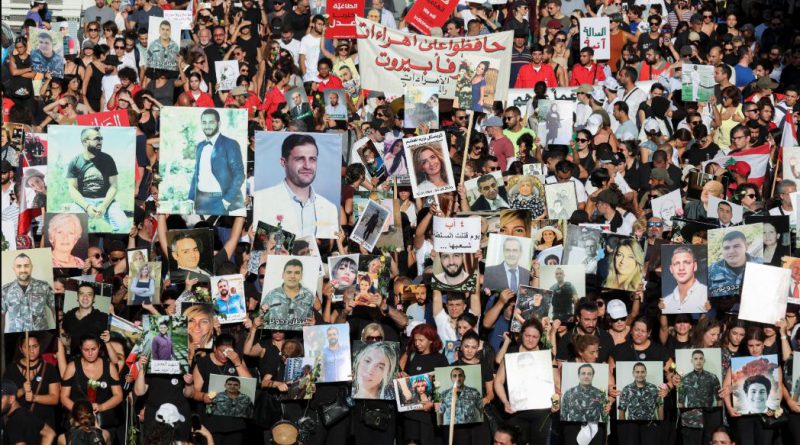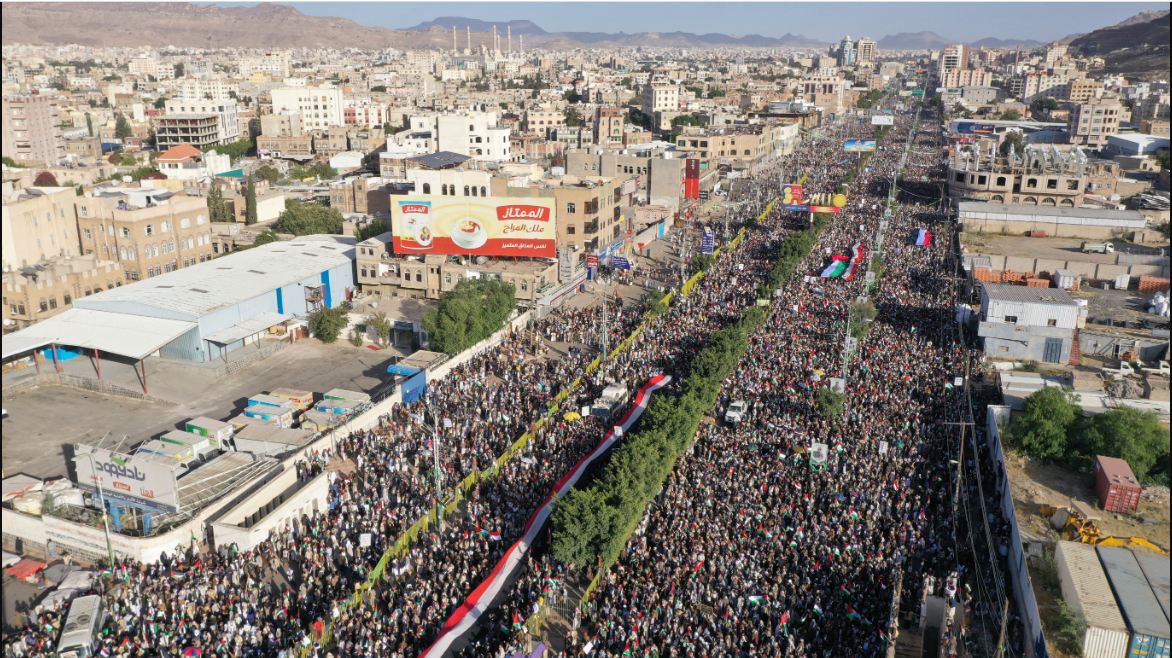Lebanon marchers mourn port blast victims three years on, angry at stalled probe
Beirut (Reuters) – Thousands of mourners and protesters marched in the Lebanese capital on Friday to remember those killed in a huge port blast three years ago, as religious leaders and rights groups decried the lack of accountability amid a stalled investigation.
The explosion killed at least 220 people and wounded thousands when hundreds of tonnes of ammonium nitrate stored in a warehouse detonated just after 6 p.m. (1600 GMT) on Aug. 4, 2020, sending a huge cloud over the city.
Despite the devastation, no senior figures have been held to account and an investigation has been obstructed by legal measures, prompting outrage in Lebanon and abroad.
On Friday, a few thousand protesters marched from the Beirut Fire Brigade – which lost 10 members in the blast – to the port.
They carried signs demanding justice and portraits of the victims – shots of laughing toddlers, passport photos of elderly women and selfies of young adults all killed in the disaster.
Edgard Sayyah, 58, walked alone holding a photograph of his aunt Therese as a young woman. Therese was 70 when the explosion ripped through her apartment in Beirut and killed her.
“It’s shameful,” Sayyah told Reuters, when asked about the lack of accountability and the relatively small numbers at the memorial compared to previous years.
“Two years from now, there won’t be any marches at all. We’ll just hold private services and suffer silently.”
The rally shut down the main highway separating the port from the Mar Mkhayel district, a bustling neighbourhood of restaurants and bars that was ripped apart by the explosion.
Many of the establishments have been painstakingly rebuilt, hosting an influx of tourists and Lebanese expatriates late into Thursday night. On Friday, the streets were empty and businesses shuttered to mark a national day of mourning.
Rights group Amnesty International said it was unacceptable that no one has been held responsible for the tragedy.
“Instead, the authorities have used every tool at their disposal to shamelessly undermine and obstruct the domestic investigation to shield themselves from accountability – and perpetuate the culture of impunity in the country,” said Aya Majzoub, Amnesty’s deputy director for the region.
The explosion is thought to have been set off by a fire in a warehouse. The chemicals had been stored at the port since 2013 when they were unloaded during an unscheduled stop, but no one claimed the shipment and it remained there despite senior officials knowing of its presence.
The probe, led by Judge Tarek Bitar, has been stalled since late 2021 by a slew of legal complaints filed against him by some of the suspects, including current and former officials.
In a memorial church service on the eve of the blast anniversary, Lebanon’s top Christian cleric, Patriarch Bechara Boutros al-Rai, backed calls for an international fact-finding committee and called for a halt to meddling in the investigation.
“What hurts these families and hurts us the most is the indifference of state officials who are preoccupied with their interests and cheap calculations,” Rai said.
The blast hit as Lebanon was already struggling with a financial meltdown that began in 2019 and the COVID pandemic. The economy has sunk further since, with the local currency losing 98% of its value and thousands of families living in poverty.



